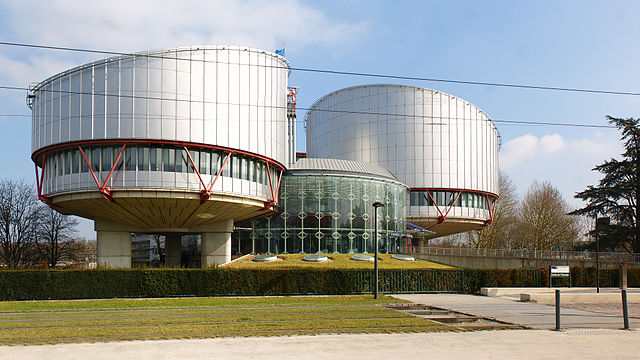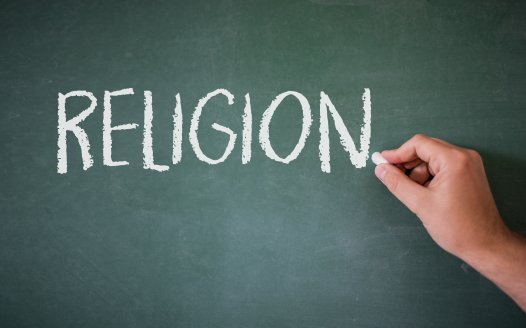NSS intervenes in key European court Religious Education case
Posted: Fri, 10th May 2019
The National Secular Society has submitted a third-party intervention to the European Court of Human Rights (ECtHR) in a key case concerning religious education in schools.
The case, Papageorgiou and Others v. Greece, concerns two Greek students who argue that the confessional nature of religious education and arrangements for pupil withdrawal violate their human rights.
The appellants claim Greece's education policies concerning RE breach the European Convention on Human Rights.
They claim breaches of the right to respect for private and family life (article eight), not to be discriminated against (article 14), and right to freedom of thought, conscience and religion (article nine).
Article three of the 1975 Constitution of Greece (Relations of Church and State) asserts the Eastern Orthodox Church of Christ as the "prevailing" religion, often leading to unequal treatment of religious minorities. Greece has received the highest number of convictions by the ECtHR over religious freedom related cases.
Religious education in Greek public schools is compulsory for all Christian Orthodox students in primary and secondary education and the content of classes is instructional, with a strong emphasis on Christian Orthodoxy.
The applicants' complaints specifically relate to RE classes at their children's schools on two small islands in the Aegean Sea. They say the classes are confessional, based on the instructions and demands of the Greek Orthodox Church, in a way that is neither neutral nor objective.
The procedure that parents have to follow to exempt pupils from RE classes includes the submission of an exemption declaration form, stating that they are not members of Christian Orthodox faith. The school principal then verifies their convictions.
The applicants argue that this process may lead to the stigmatisation of students and their parents because it becomes visible that they are not followers of the "dominant religion".
They also say the students are deprived of hours of classes because of their religious and philosophical convictions.
In its submission to the court, the NSS argues that the oppressive system for exemption from religious classes, which obliges parents to reveal their or their children's religious beliefs and the subjects those beliefs to an investigation by the school principal, is in conflict with European Court of Human Rights case law.
The NSS further argues that the failure to extend the right of withdrawal to Christian Orthodox parents effectively makes the availability of protection of parental rights dependent on whether or not they or their children adhere to the Orthodox faith. This raises serious issues in relation to article nine of the European Convention on Human Rights.
The NSS intervention also says requiring parents to be answerable for the religious and philosophical beliefs of children who may, depending on the facts, be of sufficient maturity to form their own views again fails to show respect for matters of individual conscience.
Stephen Evans, chief executive of the NSS, said: "This is a case of vital importance in terms of setting the appropriate boundaries of religious education and the role of religion in schools more generally.
"The objective of religious education should be to ensure students' knowledge of religions and beliefs and their impact on society, not to cultivate their belonging to or believing in a particular religion.
"Our intervention reminds the court that education about religion and belief provided by state schools should be objective, critical and pluralistic. Furthermore, protections from any form of confessional RE should be equally available to all, irrespective of belief, and freely exercisable without having to disclose personal information about religious and philosophical convictions."
The NSS has been actively lobbying for comprehensive reform of the way religion and belief is taught in UK schools, including in England where state-funded faith-based schools teach religious education "in accordance with the tenets of the faith of the school".
Even in non-faith-based schools, the RE syllabus is determined by local committees often dominated by religious interests. The law requires every locally agreed syllabus to "reflect that the religious traditions of Great Britain are in the main Christian".
Parents and carers (and post-16 students themselves) have the right to withdraw from RE (and collective worship) if they wish to in England and Wales. Where parents have requested that their child is withdrawn, their right must be respected, and no reasons need to be given.
No date has yet been set for when the Greece case will be heard.
Image: Building of the European Court of Human Rights, via Wikipedia, © User: CherryX [CC BY-SA 3.0]
Update 18 September 2019
On Wednesday 4 September the Greek Authority for the Protection of Personal Data (ASCPS) ruled that it was unconstitutional to require pupils' religion and citizenship/nationality be recorded on school records. On Tuesday 17 September the Ministry of Education and Religious Affairs announced it's agreed to remove all references to school children's religious faith and nationality from school records and certificates.
The National Secular Society is currently awaiting the outcome of Papageorgiou and Others v. Greece, at the ECtHR.
What the NSS stands for
The Secular Charter outlines 10 principles that guide us as we campaign for a secular democracy which safeguards all citizens' rights to freedom of and from religion.








